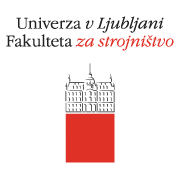Pedagogical process
At the Faculty of Mechanical Engineering, the pedagogical process on levels 1 and 2 takes place in the form of lectures and practical work or in the form of a seminar. The lectures are led by a professor who teaches the subject matter. The lectures take place in the mornings in lecture halls. The practical work is led by an assistant who transfers the theoretical material into practical examples. The practical work take place both in the morning and in the afternoon in lecture halls or laboratories. At the beginning of the academic year, students are divided into groups determined by the Faculty. The practical work groups are published at the Faculty website under the heading Notices to Students.
At present, the following study programs are carried out at the Faculty of Mechanical Engineering:
Level 1:
Professional higher study program of level in 1 Mechanical Engineering - project application program lasts 3 years, is practice-oriented and is divided into 9 areas of study in the second year and fields of study in the third year. Graduates obtain the title of graduate Mechanical Engineer (Professional higher education- VS).
| Year 1 | Year 2 - areas of study | Year 3 - fields of study |
| Single | Energy engineering Process engineering Design of machines and devices Design of industrial systems Production technologies Production engineering Airline transport pilot Aircraft design and maintenance Mechatronics | The study continues in the area selected in Year 2. |
Year 2: Program consists of the following specified directions (applies to students enrolled in the 1st year in the academic year 2019/20 and 2020/21):
- Power, Process and Environmental Engineering
- Engineering Design, Machine Operation and Maintenance
- Production Engineering
- Mechatronics
- Aviation
Year 3: available directions divide onto following sub-directions (applies to students enrolled in the 1st year in the academic year 2018/19, 2019/20 and 2020/21):
Power, Process and Environmental Engineering: Power Engineering, Household and Sanitary Technology, Process Engineering
Engineering Design, Machine Operation and Maintenance: Material Handling and Self-propelled Machines, Vehicle Engineering, Maintenance Management
Production engineering: Production Technologies, Production Management, Welding Technologies
Mechatronics: Mechatronics
Aviation: Airplane pilot/Helicopter pilot, Aircraft Design and Maintenance
University study program of level 1 in Mechanical Engineering - Research and development program lasts 3 years and is not divided into areas of study. Students acquire theoretical knowledge to continue their studies at level 2. Graduates obtain the title of graduate Mechanical Engineer (Academic higher education - UN).
Level 2:
Master’s study program of level 2 in Mechanical Engineering - Research and development program lasts 2 years and is divided into 6 areas of study. Graduates obtain the title of Master of Mechanical Engineering.
| areas of study |
| Engineering design |
| Mechanics |
| Energy engineering |
| Process engineering |
| Production engineering |
| Mechatronics and laser technology |
Basic fields of studies, which are provided regulary (applies to students enrolled in the 1st and 2nd year in the academic year 2020/21):
- Machine Design and Mechanics,
- Power and Process Engineering,
- Production Engineering,
- Mechatronics and Laser Technology.
Wherein the first three directions are divided with the two sub-directions, as follows:
- Machine Design and Mechanics: Mechanics of Materials, Systems and Processes, Engineering Design and Product Development
- Power and Process Engineering: Thermal and Process Engineering, Power Engineering
- Production Engineering: Production Technologies and Systems, Industrial Engineering.
The interdisciplinary directions of the Study Programme, which is carried out by Faculty are published in an announcement of enrolment for the each study year.
- Traffic Safety Systems,
- Engineering rheology,
- Environmental Engineering,
- Welding,
- Terotechnology,
- Engineering pedagogy,
- Engineering, Safety
International program
The joint Master's program in Surface and Contact Tribology - TRIBOS lasts 2 years and is jointly run by 4 European universities. Graduates obtain the title of Master of Engineering in Surface and Contact Tribology.
Level 3:
The doctoral study program in Mechanical Engineering lasts 4 years and is divided into 3 main areas of study. Graduates obtain the title of Doctor of Science.
| areas of study |
| Structural and Mechanical Science of Engineering |
| Energy, Process and Environmental Science of Engineering |
| Manufacturing Science of Engineering, Cybernetics and Mechatronics |
The interdisciplinary doctoral study program in Environmental Protection (coordinated at the level of the University of Ljubljana) lasts 4 years and combines scientific fields of 13 faculties. Graduates obtain the title of Doctor of Science.
The interdisciplinary doctoral study program in Biosciences lasts 4 years and is jointly run by 4 members of the University of Ljubljana. Graduates obtain the title of Doctor of Science.
